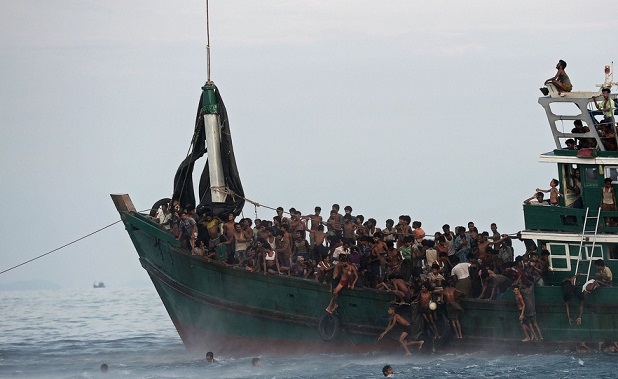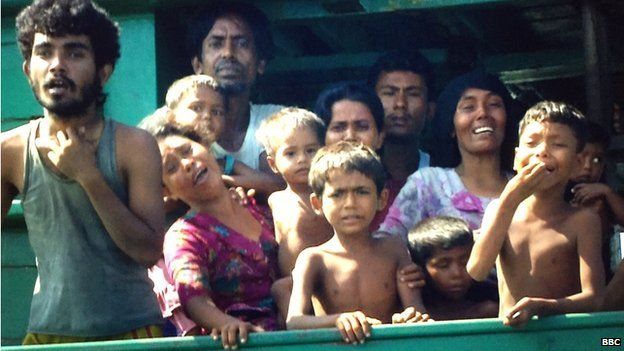THE House of Representatives should not waste a day longer and act with dispatch on the Freedom of Information bill.
In fact, what the House needs to do at this time, with Congress set to go on recess on June 4, is to put the FOI bill on top priority, according to the Right to Know, Right Now! Coalition of about 160 civil society organizations and leaders.
High prioritization of the FOI bill could mean a few, easy things that President Aquino, Speaker Feliciano Belmonte Jr., and other House leaders could do — “a high-level meeting, a phone call, adoption of a clear timetable, clearing-up of hold-ups and delays, mention at the State of the Nation Address, the President certifying to the necessity of immediate enactment, and ultimately, the House leadership putting the bill on the plenary agenda and mobilizing key legislators to move the process forward.”
What follows is the full text of the Coalition’s statement:
FOI Losing Time, High
Prioritization EssentialCOMMITTEE ON PUBLIC INFORMATION Chairperson Jorge T. Almonte and House FOI champions and authors were scheduled to file the Committee Report on the FOI Bill with the Secretary General of the House of Representative last Wednesday, May 20, at 3:30 pm.
However, at around 2 pm, Chair Almonte felt compelled to postpone the event, anticipating that the final vote on the BBL happening that afternoon will take longer than earlier expected. He was set to vote on the BBL, along with a number of FOI authors who are members, ex-officio members, or deputized members of the House Ad Hoc Committee on the Bangsamoro Basic Law.
We hope that the postponed filing of the Committee Report on the FOI Bill will happen at the soonest. The filing of the report is significant. It marks the shift of the FOI Bill from the committee level to the even more challenging work at the plenary level.
In spite of the advance of the FOI bill signified by the filing of the Committee Report, we lost important time. The last three weeks since the resumption of session on May 4, and early next week when the BBL goes through approval by the Committee on Appropriations, would have been an opportunity to start sponsorship and interpellation of the FOI bill in plenary.
The Need for High PrioritizationThis brings to light the importance of a measure being given high prioritization by the leadership of Congress and by the President. The impact of high prioritization on how a measure moves in Congress, particularly for major, controversial or resisted bills like FOI, is all too clear. We saw it in RH, in Sin Tax, and now in BBL.
We attest to the hard work at the committee level of Chair Almonte, FOI authors and champion legislators and their staff, as well as of the advocates in getting the bill through the committee process. We attest to the responsiveness of the Committee on Appropriations and its Chairperson, Rep. Isidro Ungab, in the prompt approval of the appropriations provision of the bill. We also attest to the committed and untiring support from the staff of the committee secretariat. (See legislative history of the FOI bill at the committee level in 16th Congress below).
However, this is where high prioritization spells the difference. To be sure certain steps could have been speeded up if the passage of FOI is given high priority, similar to the bills we mentioned earlier.
Especially at this critical juncture when we approach the third and final regular session in a Presidential election year, the FOI bill cannot be just one of numerous priorities. It will take a very high level of prioritization and leadership if it is to finally pass.
By observation, we are all familiar with the many mechanisms by which a high level of prioritization is conveyed: a high-level meeting, a phone call, adoption of a clear timetable, clearing-up of hold-ups and delays, mention at the State of the Nation Address, the President certifying to the necessity of immediate enactment, and ultimately, the House leadership putting the bill on the plenary agenda and mobilizing key legislators to move the process forward.
The coalition sees it as a challenge for itself and concerned citizens to demonstrate a compelling strength to move our leaders to place the passage of the FOI Bill high in their priorities, as much as we see it as a matter of accountability and question of leadership for the highest leaders of this country.
FOI Tracker Rating Drops
In our FOI Tracker # 1 assessing Congress action on FOI, we said that the bill was well positioned for passage, and in the Green Zone with a rating of 85.
With the delay and anticipating that the BBL will reach plenary given its prioritization, our appeal for the completion of sponsorship and start of interpellation before the June 11 adjournment has turned difficult. Given this, the rating drops by 20 points to 65, and moves to the Yellow Zone. The FOI Tracker may be viewed at http://www.i-foi.org
Legislative History of the FOI Bill at the Committee Level in the 16th Congress
October 23, 2013, Committee organizational meeting, where a motion to create a Technical Working Group (TWG) to consolidate the FOI bills was approved
November 26, 2013,The TWG was constituted
February 6, 2014, TWG Meeting # 1
February 18, 2014, TWG Meeting # 2
March 10, 2014, TWG Meeting # 3
May 12, 2014, TWG Meeting # 4
May 19, 2014, TWG Meeting # 5
May 28, 2014, TWG Meeting # 6
June 9, 2014, TWG Meeting # 7
August 4, 2014, TWG Meeting # 8
September 2, 2014, TWG Meeting # 9, Approval of Substitute Bill
November 24, 2014, Committee Approval of the Substitute Bill
Voting: Nine (9) Yes: Reps. Abad, Aglipay-Villar, Baguilat, Bataoil, Bello, Dalog, Ferriol-Pascual, Gutierrez, Lobregat, Paquiz; Three (3) No: Reps. Colmenares, Romualdo, TinioNovember 25, 2014, Referral to the Committee on Appropriations for approval of the appropriations provision of the Substitute Bill
March 4, 2015, Approval of the appropriations provision, with amendment, by the Committee on Appropriations
March 24, 2015, Certification of Committee on Appropriations action received by the Committee on Public Information
May 14, 2015, Committee Secretariat receives back the documentation of the Committee Report from the 4-step administrative approval by the Committee Affairs Department of the House Secretariat, through the Service Director, Deputy Executive Director, Executive Director and the Deputy Secretary General for Committee Affairs
May 19, 2015, Committee Report signed by Rep. Isidro Ungab on the part of the Committee on Appropriations. Rep. Jorge Almonte, FOI authors and champions agree to a group filing of the Committee Report on May 20, 2015 at 3:30 pm, upon signing of the committee report by Rep. Jorge Almonte on the part of the Committee on Public Information
May 20, 2015, Scheduled group filing of the Committee Report with the Secretary General postponed.


